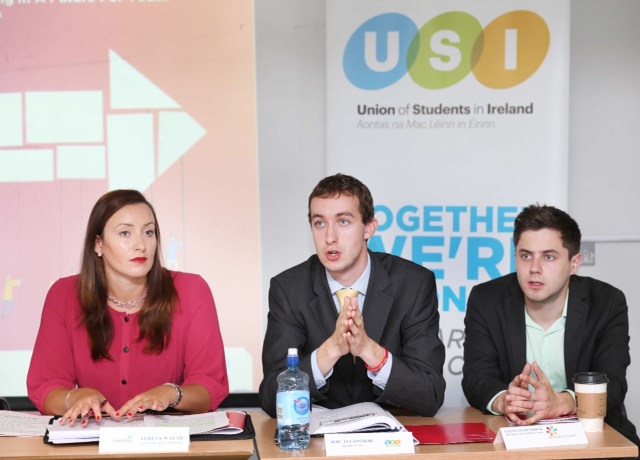The Irish Congress of Trade Unions (ICTU), the Union of Students in Ireland (USI) and the Irish Second Level Students’ Union (ISSU) have called on the Government to address the job crisis and “the lack of properly regulated schemes” in DIT Aungier Street last week.
ICTU, USI and ISSU are seeking joint meetings with “all relevant government ministers and departments” to create a clear strategy to tackle the problems facing youth unemployment.
The two national students’ unions joined with the national trade union body to launch Locked out? Investing in a Future for Youth. The publication that demands a National Jobs Strategy for Young People, Jobs Stimulus, investment in the Youth Guarantee and a legal framework for work placements.
Collectively, the national student and trade union bodies represent more than one million people, and believe they are “in a unique position to tackle the strikingly high figures of youths on the dole or who are forced to emigrate after finishing their degrees”.
The three bodies were particularly critical of schemes such as JobBridge that exploited students through work placements and internships. Speaking on behalf of the Congress Youth Committee, Lorraine Mulligan highlighted the danger that students are “putting up with a lot” as a result of a poor jobs market. Furthermore, the Government should outline “proper terms and conditions of employment and proper contracts”.
According to USI President Joe O’Connor “there needs to be an investment in the future of JobBridge as a lack of oversight leads to exploitation”.
Glen Fitzpatrick, President of Dublin Institute of Technology Students’ Union, said that “there is a lot of anecdotal evidence that indicates that there is are no induction, mentoring and feedback systems in place. Often internships can be seen as paid work by another name.”







